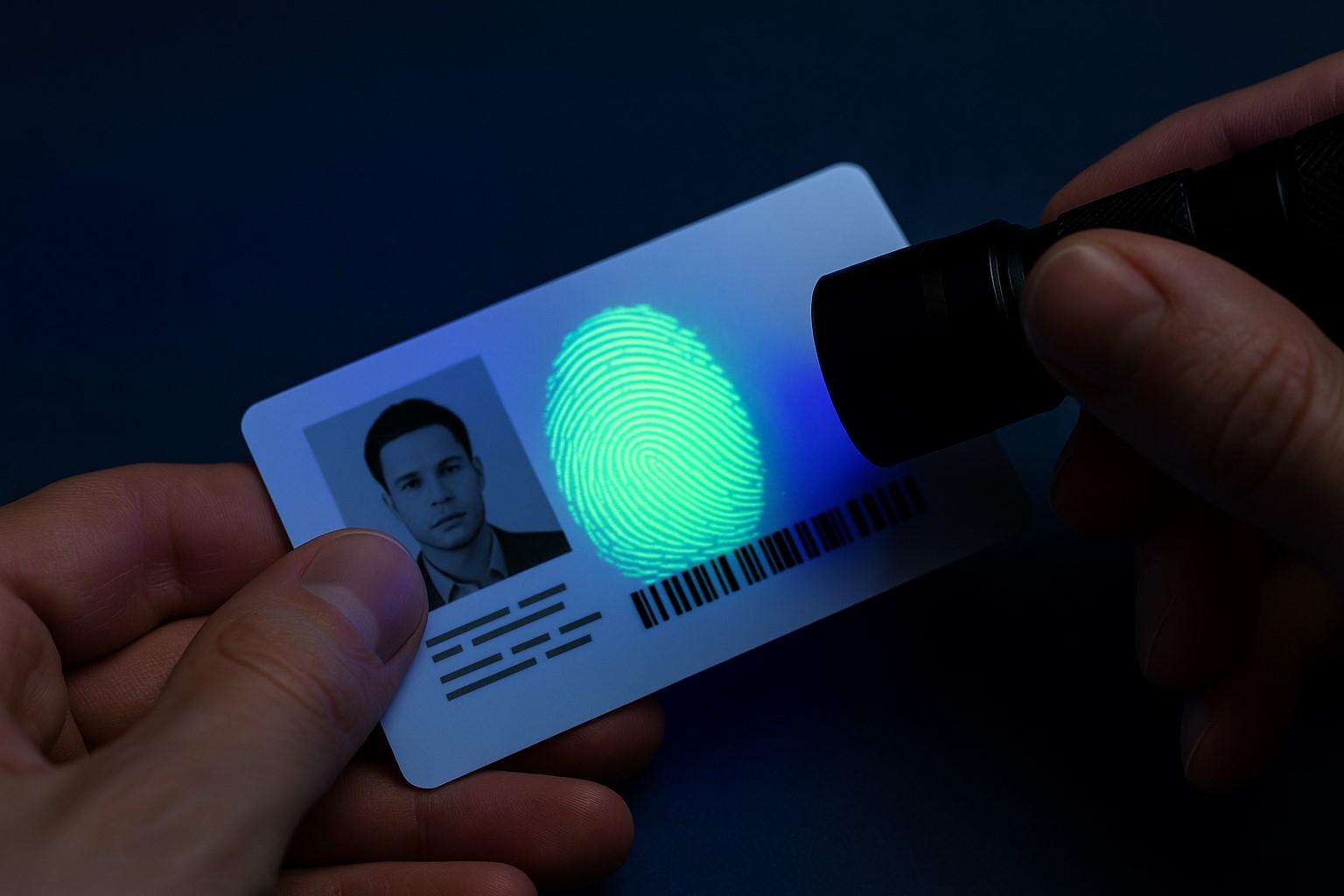The Growing Threat to Identity Security
In today’s digital-driven world, ID card protection has become more vital than ever. Personal data theft and identity fraud are increasing across industries. Government agencies, educational institutions, and corporations are all facing new security challenges. Meanwhile, counterfeiters are using more advanced methods to fake identity cards. Standard printing no longer offers enough protection. That’s why security ink for ID cards is now a key tool in modern anti-counterfeiting strategies.
Und Mingbo, we specialize in bulk anti-counterfeiting ink solutions tailored for high-security applications. In diesem Artikel, we’ll explain why security ink matters, how it works, and how it empowers large-scale ID card producers.
Understanding the Role of Security Ink in ID Card Protection
What Is Security Ink for ID Cards?
Security ink is a specialized ink designed to reveal tampering, prevent duplication, and authenticate documents. When applied to ID cards, this ink creates features that are:
Difficult to replicate
Visually identifiable or invisible under specific lighting
Traceable during verification
Unlike regular ink, anti-counterfeiting ink integrates chemical markers and reactive components to boost card security at the material level.
Why Traditional ID Cards Are No Longer Safe Enough
Traditional ID cards use lamination, barcodes, or QR codes for protection. Jedoch, criminals can easily clone or alter these methods. ID cards control access to buildings, systems, and borders.
Therefore, forgeries pose real risks to companies and nations. To counter this, we must adopt secure printing methods. Security ink helps protect ID cards from tampering and duplication. Thus, using security ink has become a crucial safety measure.
Key Types of Anti-Counterfeiting Ink Used in ID Cards
1. UV Unsichtbare Tinte
This ink is invisible under normal light but visible under ultraviolet light. It is one of the most common features in secure ID printing. UV ink offers a covert security layer for quick field verification.
2. Thermochromic Ink
This ink changes color with temperature. It’s often used for interactive ID features or hidden authentication marks. It helps users and scanners confirm the card’s authenticity instantly.
3. Photochromtinte
Photochromic ink responds to sunlight or UV rays, changing its color temporarily. This property makes it perfect for outdoor ID checks and fraud prevention in daylight conditions.
4. Color-Shifting Ink
Color-shifting ink shows different hues from different angles. This not only adds a premium aesthetic but also prevents scanning or copying. It’s frequently used in passports and national IDs.
5. Magnetic Ink
Though more common in financial documents, magnetic ink also secures cards that involve machine reading, such as access control cards or payment IDs.
How Security Ink Adds Multi-Layer Protection
Physical Layer
Anti-counterfeiting ink makes ID cards physically hard to replicate. The use of proprietary ink formulas ensures that even if a counterfeiter copies the layout, the ink properties can’t be imitated.
Visual Verification Layer
Inks like UV, Thermochrom, and photochromic types allow quick visual checks. Officials or machines can verify authenticity without complex equipment.
Technical Layer
Our advanced ink systems can be combined with QR codes, holograms, or RFID chips, making the card digitally and chemically secure.
Industry Use Cases: Who Needs Security Ink for ID Cards?
Government Agencies
ID cards for voters, social benefits, and public workers demand the highest level of protection. Governments use multi-layer security ink in passports and citizen ID cards to stop fraud.
Corporations and Enterprises
Employee ID cards often act as access keys and identity proof. Secure inks prevent duplication, especially in sensitive industries like finance, defense, and logistics.
Educational Institutions
Universities use secure student ID cards for exams, dormitory access, and payment systems. Security ink helps avoid unauthorized use and ID swapping.
Event Organizers
High-value events often require one-time secure passes. Custom inks allow authentication at checkpoints while preventing reselling or copying.
Trends Shaping the Future of ID Card Security
1. Hybrid Security: Digital + Physical
Security ink now pairs with digital tools like blockchain, biometrics, and chips. Together, they create future-ready IDs.
2. Eco-Friendly Inks
Mingbo is proud to offer sustainable anti-counterfeiting ink options that meet rising environmental regulations.
3. Smart ID Verification
Mobile scanners, AR apps, and smart kiosks can detect security ink markers. This lowers human error during ID verification.
Common Questions About Security Ink for ID Cards
Is security ink visible to the naked eye?
Some types, like UV ink, are not. Others, like color-shifting ink, are designed to be visible but dynamic.
Can security ink be removed or altered?
No. Our formulations bind at a chemical level, making alterations obvious and irreversible.
How long does the ink stay effective?
All inks are tested for 5+ years of durability, even under regular handling.
Do I need special printers?
Some inks work with standard offset or screen printers. Others need UV curing or heat activation.
Abschluss: Reinvent Your Identity Security with Mingbo
In today’s identity-driven landscape, relying on traditional ID card printing is no longer enough. Advanced security ink for ID cards ensures that your identity solutions can withstand modern threats. Whether you’re a government agency or a private enterprise, Mingbo’s anti-counterfeiting ink offers the flexibility, Zuverlässigkeit, and scalability you need.
Contact our team to learn how we can help you design a secure, custom solution tailored to your industry.
Call to Action (CTA):
Ready to level up your ID card protection?
Contact Mingbo for bulk pricing, ink samples, or a free consultation.
👉 [Get a Quote Now] | 📩 https://uvsecurityink.com




